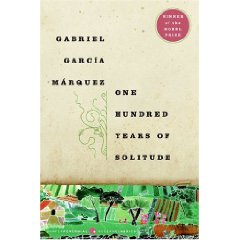–
On school visits, I find that students often ask about rejection. How do authors deal with it? This curiosity makes perfect sense, since rejection is in no way limited to the realm of writers seeking publication. The world rejects us all day long: too short, too fat, too old, too noisy, too quiet, too magenta. And worst of all, not enough “likes” on our pithy Facebook updates or Instagram images. How do we — all of us — keep believing in the face of that?
Many thanks to the five sage authors (and in some cases, author-agents) who took the time to respond to my query: Ammi-Joan Paquette, Parker Peevyhouse, Jennifer Arena, Donna Gephart, and Kevin Lewis.
Ammi-Joan Paquette
Rejection can be a very useful idea gauge. Of course, it’s always painful at first. But once the sting settles, then you’re able to take a step back and try the specific criticisms on for size. How do they feel? How do they fit? Some particulars might be thoroughly subjective or even way off base, but others may have some bounce. Ultimately, while rejection can kill a weak idea, it will just make a great one come back stronger.
Parker Peevyhouse
If you’re getting a lot of rejections on your writing, consider the idea that you might be doing something right.
If it’s your craft that’s being rejected, than okay, you’re doing something wrong. But if your rejections sound something like, “I don’t know how to market this” or “Consider rewriting this so it’s more like X,” then you’re likely onto something interesting.
Popular wisdom is that the more specific the writing, the more universal. But some of us have… weirder specifics than others. Such writing isn’t always going to be readily accepted—because it isn’t familiar. In that case, rejection is a sign that you’re onto something new and interesting and challenging. Don’t be afraid of it.
Jennifer Arena
I’ll never forget one of the rejections I got for Lady Liberty’s Holiday, a picture book about the Statue of Liberty taking off to wander across America. The editor wrote, “I’m not keen on seeing the statue turned into a moving, flexible creature. It seems weird.” Most rejections sting a little, but this just made me laugh. I worry ahead of time about all the things someone might criticize—not enough tension, a weak ending, no emotional arc—but being weirded out by a talking, walking Statue of Liberty? Surprise!
When it comes to rejections, I don’t take them personally. Some people like cilantro. Some people hate it. It doesn’t mean cilantro is either bad or good. Stories are the same. Each one needs to find the right audience, the right editor, the right readers. And when a manuscript goes out and no one bites, no one even nibbles? I’m relieved—I want only my best work to be published and all-out rejection usually means that manuscript just wasn’t good enough. Still I read all the feedback carefully. By learning what editors like and dislike, I can grow, adapt, and become a better writer and storyteller. There’s nothing I can do about one person who finding a flexible Lady Liberty weird . . . except laugh, and not take it personally.
Donna Gephart
Rejections are a part of the journey of becoming a published author. They feel awful in the moment – personal and painful – but they are a sign you are doing the hard work of creating something new and bravely putting it out into the world. Failure is an inevitable part of success. You must steel yourself to it and learn from it. As Samuel Beckett said, “Ever tried. Ever failed. No matter. Try again. Fail again. Fail better.” Is there a comment in the rejection letter you could grow from? Is there a hint that you are getting closer? Keep going! Keep trying! Every rejection you receive is a stepping-stone to your eventual success. When you get down about a particular rejection, keep in mind that J.K. Rowling, Ursula K. Le Guin, Dr. Seuss, Mo Willems and so many others received multiple rejections for their work.
Kevin Lewis
I’ve never been one for rejection. As an editor, I found handing one out to be as distasteful as being on the receiving end of one. You could say, I thought of them as a “necessary evil,” so I’ve spent the majority of my career creating a personal work environment that minimalized their occurrence.
Now that path feels short sighted. Rejection and choice are a matched set. By avoiding the former, I limited my experience of the latter, and while that may not seem like a big deal, it ultimately led to a couple of unfortunate outcomes.
First, I forgot how much I learned from the process of rejecting. The first manuscript I ever acquired, Lynne Plourde’s PIGS IN THE MUD IN THE MIDDLE OF THE RUD, occurred after rejecting it over and over again until finally there wasn’t a credible reason to pass on it. So I bought it. When I stopped actively rejecting, my ability to trust my choices became impaired.
Reflecting on Lynne’s tenacity as a writer, leads me to the second disastrous result. I grew thin-skinned, which impacted me as both an editor and a writer. Ultimately, the mere thought of a project not being embraced meant dropping it. Not rejecting it, mind you. Simply letting it go. Not ideal, but survivable as an editor. Impossible for a writer.
So what lead to this insight? Oddly enough, becoming something I never considered: an agent. Maybe it’s the starting over. Or maybe it’s the sheer volume of rejection that comes with the territory. But these days, I see only the necessity of each rejection. Ram Dass said it best: “It is important to expect nothing, to take every experience, including the negative ones, as merely steps on the path, and to proceed.”
Huzzah!
–
–







